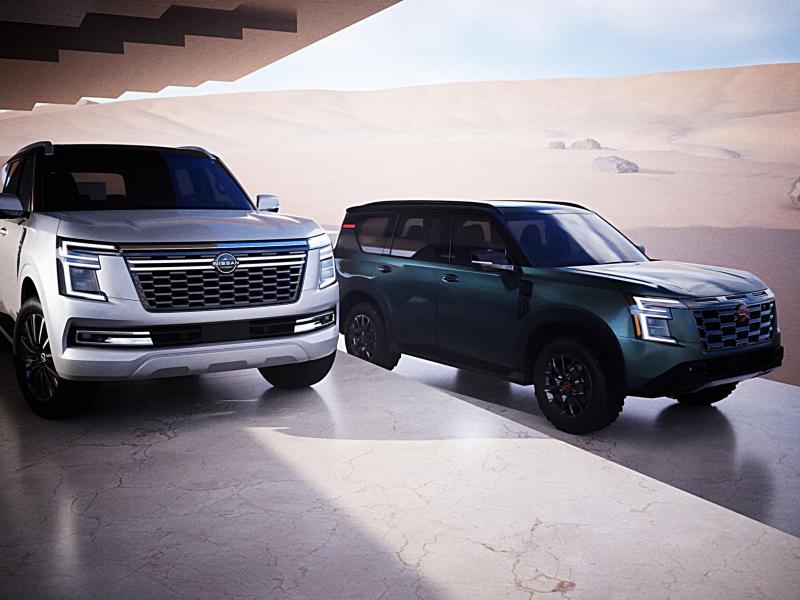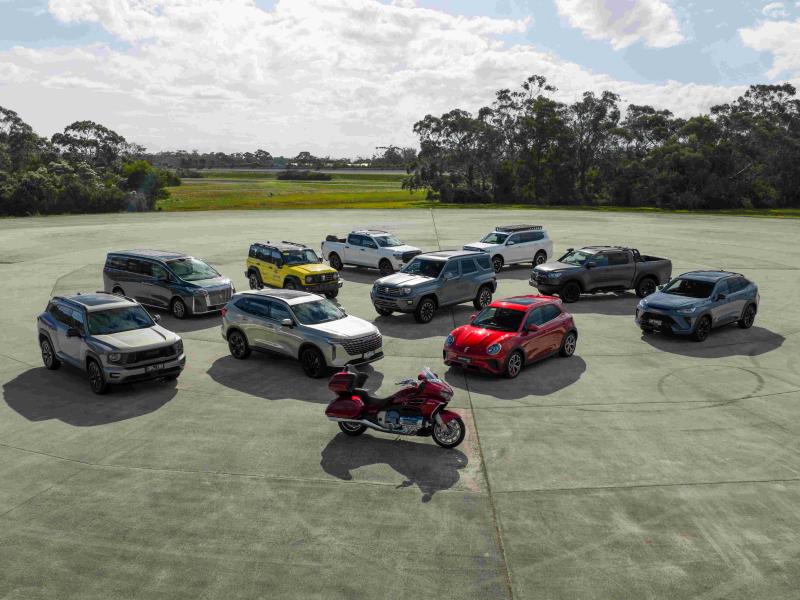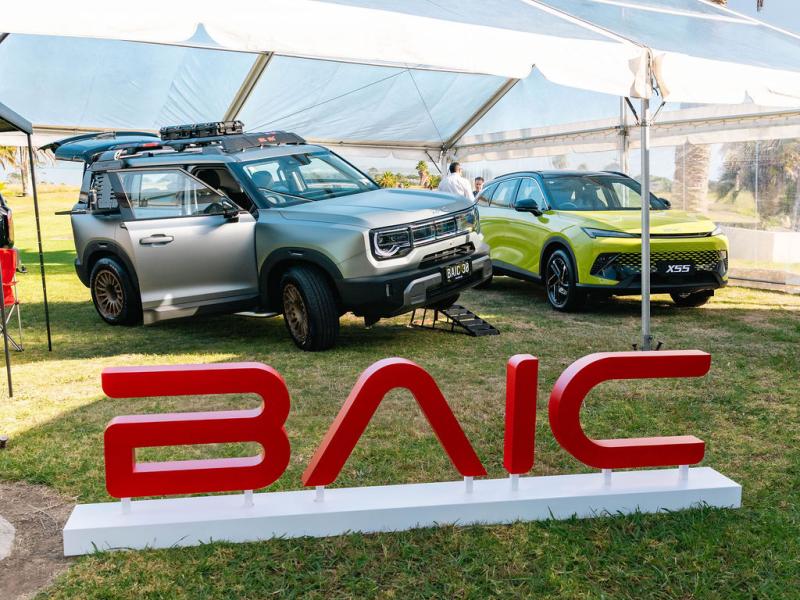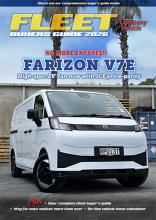Alistair is originally from the UK, (his accent gives him away), but is now based at the Ford Transit manufacturing plant in Istanbul. It’s his first time in the Southern Hemisphere, lucky enough for him and us skipped Australia and came straight to NZ. However, apparently his four days on the Ford ‘Tradies’ Stand at Fieldays has given both his legs and ears a workout.
“I’ve been listening a lot to what people have been saying,” begins Alistair. “It’s been really good talking to the people that are using the products, they’re not backwards in coming forward, telling us about the products and how they’re gonna help them make their lives easier.”
CV – So what’s been the feedback generally?
I think they’re wow’d by the look of the new Transit, it’s not a ute so it’s a little bit different. The tradies love the space, versatility, and the practicality. The new architecture gives them a low step-in height in the back, so that is really useful for getting in and out. But it’s the versatility of space that is really a big add, a lot more room than the utes. I think they love the idea of having a bit more shelter and a bit more space in the back of the van, so that’s something we’ll certainly take on board.
And they’re really pleased with the towing capability. We offer up to 2.8-tonnes which really is very credible. They thought they only got that capability in the ute, so having that in a van is a big add.
I heard loud and clear they want an AWD, so that’s something to take back to the team, because we have an all-wheel drive in Europe, and I think that would be a game changer to help encourage them to move from a ute to a van.
CV – So would they buy an AWD Transit or is it a case of ‘wanting what they (currently) can’t have’?
That’s always a worry, and while we listen to what they say, we love to ride along with them to see what they do. Seeing what they’re doing is sometimes very different to what they say.
[For example] 3.5 tonne trailers is what they think they want to tow, but when you spend a couple of weeks with them and see actually what they do, where they do drive, how much AWD do they really use?
But towing is something that’s big in the UK. We’ve probably got upwards of 25 percent of our Custom drivers tow. And that was really important with the new platform, offering class leading towing capability in the 1-tonne segment. And as we’ve electrified the Transit Custom, we offer up to 2.3-tonne capability as well. So it’s a fully electric bev vehicle that can tow. Having something that can’t really tow two tonnes, really isn’t a credible commercial vehicle product, particularly as we help our customers transition into that electrified space.
CV – How much does the range drop if you were to tow something that size?
It depends on what you drive and how you drive, and you might have a small heavy trailer or you might have a very light big trailer, but the more you work that vehicle, the range is going to drop.
CV – As far as transition goes, you seem to have been with Ford most of your career?
I’ve been very fortunate, as a lad I was sponsored by Ford as an undergraduate so they financially helped me through university. And I came back as an undergraduate, so I must have done something right. And I’ve not looked back since. So all of my career, nearly 30 years, has been with the Ford Motor Company.
CV – You started off on the manual transmission side, that’s almost a dinosaur now isn’t it?
I think the acceleration out of manuals was probably much quicker than many of us thought. In Europe, the stage 7 emissions due in the future was nearly looking like the death of manual transmissions but with the legislation change, it means that I think there’s a few more years left in manual transmissions which is great for those stick shift lovers.
But Autos just make driving easier and the roads are getting busier, so having that seamless shifting… And I think we’re all getting a little bit lazy and we like those home comforts. It’s fully integrated with a lot of the driver assist technology too, so I think there’s a lot of people who, even when not ‘legally forced’, are deciding that an auto is a product of choice.
CV – What do you think about the move towards autonomous driving?
We’ll be offering BlueCruise very soon in Transit, which will be another game changer, that’s gonna make people’s lives a lot easier. I think some people love driving, some people hate driving, and some people want to be driven. Moving to Istanbul was a bit of an eye-opener for me. 20 million people means that the roads are full of cars and if you can be driven, you get back a lot of time. So having that opportunity not to lose that time whilst you’re in traffic, through autonomy, I think that’s really really powerful is going to help a lot of people. And also people who just can’t drive or don’t want to drive, it gives them their independence, and flexibility. It’ll be interesting to see where the next five years takes us.
CV – There’s always going to be a need for a transit though?
I hope so. The best selling van in Europe is not going to go away quickly. People want to do jobs. Plumbers want to plumb, chippies want to chip, you need to get the stuff to the site, move people etc. So we operate in a very ‘broad use’ case of what we do, and how we do it. So I think the Transit’s gonna be around for a long time. I think what we will see is that transition to be electrified. It’s a bit of a bumpy journey right now, difficult for some to comprehend, and infrastructure’s a challenge, but as we progress I think we’ll see a much richer mix of electrified which moves that driving experience on. The ability to take power with you opens up many, many doors in rural remote areas, and being able to tap into that power. So some really exciting content and opportunity that opens up.
CV – Is there still a reluctance out there as to whether an EV van is fit for purpose?
‘Fit for purpose’ goes with all powertrains. And that’s why we’ve developed the new custom ‘multi fuel’ platform. We’ve got clean diesel, we’ve got PHEV and we’ve got BEV battery electric just to make that transition at people’s rates of change available to them, we don’t want to go at a rate that doesn’t suit them. So we’ve got all of those bases covered, both in technology available to them and how we can flick the mix in our assembly facilities as well. So we can keep up with that rate of adoption and flex accordingly.
CV – Ford seems to be at the forefront of technology, both in ADAS and powertrains, and that’s obviously true with the Transit.
Yeah, it’s certainly setting a standard, a lot of changes on the new architecture, just to keep ahead of the times, some fantastic driving experience with a new rear suspension. The old one drove like a car and now the new one drives better than most cars. So yeah, we’re setting the pace in the one tonne van space. I guess that’s probably the reason why it’s the best selling van in Europe and we hope to bring some of that strength and richness to New Zealand
CV – Do you see any hurdles in that?
As I found out, Turkey is a long way away, it took me a day to get here, so the logistics of getting those vehicles here, and some of the unforeseen obstacles that get in the way (such as shipping), so we’re trying to bring that in-house into our control. I think the main thing is getting the volume here. I mean the product speaks for itself and then getting bums on seats to just experience it and embrace it.
CV – Do you see the focus still being towards electrification, what about a hydrogen Transit?
I think all countries around the world are doing things slightly differently, with different flavours at different times. So I think Ford has positioned ourselves to give every customer the opportunity to have what customers think works best for them, and we help them with that choice and journey. So having a fully electrified, diesel, and PHEV line-up covers all of those bases for our customers to do what they need to do and in the most efficient ways. That’s where we try to play. We don’t want to force people into products that don’t work for them. And we’re very open and welcome to incentives that help people make that journey easier. So that comes easier and harder in certain countries as well.
Hydrogen, I think that’s another great technology. However, we get concerned over the infrastructure for electrification, so some would say that hydrogen journey’s a little bit harder again, a little bit further away. But it’s certainly something that we’re studying in that space. And again, just to create more opportunities for our customers. We’re already starting to see a few of them (hydrogen vehicles) out there, but will it go mainstream? I guess we’ll watch this space.
CV – Is there anything else that you feel that customers need to know about the direction of the Transit?
It’s the best selling van in Europe and in 2022 the best selling vehicle in the UK, and that doesn’t happen by chance. We’ve got great other products, and other people have got great products on sale, so to have those accolades is absolutely fantastic. It won international van of the year in 2024 recognised across the jury of independent people. So it’s great.
But I would just encourage you to go to your local dealer, and say ‘Ali said I can drive one’ and I’m pretty sure you won’t be disappointed. The versatility, the capability of what the Custom and Torneo offer for people movers or stuff moving is just fantastic. I think it’s a real game changer. I think it will really make lives easier. Every product’s got its place but Custom and Torneo, they’re fantastic.
Thanks.






